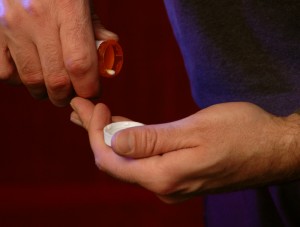
Like any drug, opioids cause primary therapeutic effects and some unwanted side effects.
Primary effects of opioids are to:
- relieve pain
- cause euphoria
Side effects include:
- drowsiness
- confusion
- physical dependence
- addiction
Chronic use of opioids increases the risk for side effects, especially addiction. Many people become addicted to opioids after using these drugs for recreational reasons – to get high. Others become addicted after using opioids as prescribed by a physician to treat a chronic or acute injury or illness.
For over 25 years, people from all over the world have chosen Waismann Method as their opioid detox provider.
We know the challenges you face and the importance of creating a unique and personal experience for you right from the start.Call for Detox Options 1-800-423-2482
Addiction and dependence make it very difficult for someone to stop using opioids. The individual must endure several days – or even weeks – of physically uncomfortable withdrawal symptoms and intense cravings. Without medical support, many addicted and dependent people relapse back to drug use when withdrawal symptoms and cravings become too strong and last too long.
Suboxone as Therapy
Addiction specialists have devised several treatment approaches for addiction and dependence. One is medically supervised detoxification, where doctors administer medicine to make the withdrawal process tolerable. Another approach is to prescribe a replacement drug with opioid levels just high enough to stop withdrawal symptoms but too low to cause euphoria. These drugs can act as bridges from addiction to sobriety.
One such drug is Suboxone, which is a combination of two substances: buprenorphine and naloxone. Buprenorphine is an opioid, so it prevents the onset of withdrawal symptoms. Naloxone reverses the effects of opioids, so adding naloxone prevents the user from injecting large amounts of Suboxone to get high.
The idea is that a patient should take Suboxone to delay withdrawal symptoms while he learns how to live without heroin or other opioids. Once rehabilitated, he would wean himself from Suboxone at his own pace.
Suboxone as Trouble
As with other opioids, addiction is one of the primary side effects of long-term Suboxone use. Some patients who use Suboxone find they have merely traded one addiction for another. These individuals experience the same withdrawal symptoms and cravings they had been trying to avoid when they initiated Suboxone treatment. Many engage in medical care to make Suboxone detoxification tolerable while others endure Suboxone withdrawal alone.
Drug dealers are taking advantage of the new trend of Suboxone addiction by selling the drug on the black market. Suboxone fills the headlines with stories about patients who sell their Suboxone and articles about doctors who prescribe the medication off-label to treat pain.
There are reports of Suboxone overdoses, usually resulting from improper administration or taking large doses in an effort to get high. According to Drugs.com, the risk for death resulting from buprenorphine overdose greatly increases when the consumer uses the drug in combination with alcohol and other substances, especially benzodiazepines used for anxiety and depression.
While Suboxone helps many people overcome opioid addiction, this drug can bring trouble for others. Anyone concerned about Suboxone addiction should consult with a physician to discuss treatment options.





